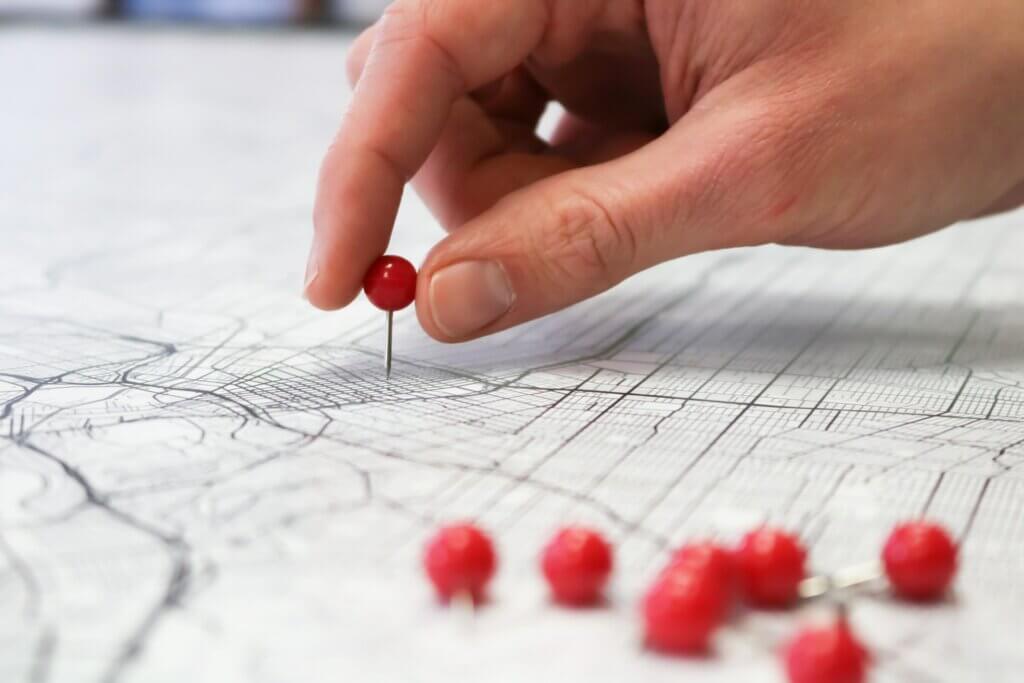What to do with my Geography degree?
A degree in geography will provide you with strong research and analytical skills that are valued highly by many employers. If you are interested in helping to improve the world’s landscape and help find solutions to some of modern society’s most pressing issues – such as climate change, natural disasters, overpopulation, urban expansion and multicultural integration, then a geography degree will be a great choice of study.
There are two types of geography degrees – physical geography and human geography. Your career will very much depend on which one you choose. The former is the study of natural science, looking at the Earth’s physical materials and processes, while the latter is a social science where you will study issues relating to human communities and cultures.
Career options
Natural career paths following a geography degree:
- Marketing Executive
- Business analyst
- Secondary school teacher
- Social researcher
- Town Planner
- Cartographer
- Data analyst
- Environmental Consultant
- Geographical information systems officer
Transferable skills career paths:
- Sustainability consultant
- Transport planner
- Construction manager
- Architect
- Market researcher
- Nature conservation officer
These should only be used as a guide. Many employers will accept applications from students that have studied various degrees.
Work experience
Those wanting a career with geography skills should investigate doing an industry placement – pre-entry work is valued highly. Your careers department at your university should be able to help you identify these. These may include opportunities within the following:
- Charities
- Environmental consultancies
- Local councils
- Planning departments
- Utility companies
If your university course does not offer a placement year, you may want to consider doing part-time, summer or voluntary work. To give yourself a head start, you can reach out to local businesses to see if there is a need for the skills you have already developed throughout your degree and the opportunity to learn and grow.
Any kind of pre-entry experience will give your application an advantage. It will also help you to develop the essential skills needed to succeed in the industry. Employers value work experience very highly, and it will also allow you to network and build a list of contacts who may become useful in the future.

Typical employers
The skills you will develop through a geography degree are in demand across various sectors including education, commerce, industry, transport, tourism and public sectors. These skills are applicable to careers in urban planning, environmental consulting, GIS analysis, market research, sustainability, and international development.
Typical employers of geography students include:
- Government agencies
- Environmental organizations
- Consulting firms
- Research institutions and think tanks
- Education sector
- Transportation and logistics companies
- Real estate and property development companies
- Natural resource and energy companies
- Non-governmental organisations (NGOs)
- Technology companies
Below are some of the job titles you earn with a geography degree:
- Urban Planner
- Environmental Consultant
- Cartographer
- Location Analyst
- Sustainability Specialist
- Market Research Analyst
- Transportation Planner
- GIS Technician
- Climatologist
- Land Use Planner
- Remote Sensing Specialist
- Conservation Officer
- Demographer
- Geographic Educator
Skills for your CV
Through your degree, you will gain a good understanding of a whole host of practical, social, economic and environmental issues. Geography allows you to apply that knowledge to the real world to help solve some of the biggest issues facing humanity. You will also learn industry-specific skills such as field work, using specialist equipment, preparing maps and diagrams and using social surveys and interpretive methods.
You may also cover a module in population geography which combines human geography with quantitative research and analysis. This will provide you with a particular skill set that is sought after, as most social science degrees focus mainly on qualitative research. These will be especially valued in roles where social research plays a big factor. Make sure the following skills are highlighted on your CV:
- Research, analysis, and evaluation
- Mathematical and computational proficiency
- IT skills (computer cartography, databases, spreadsheets)
- Effective written and oral communication (report writing, data presentation)
- Abstract concept comprehension and audience articulation
- Planning, problem-solving, and creative thinking
- Recognition of moral and ethical issues Independent and collaborative work abilities
- Self-motivation, self-reliance, and time management
Further study
It’s not uncommon for geography graduates to continue their studies with a postgraduate degree. Such as:
- Master’s in Geography
- Master’s in Urban Planning or Regional Planning
- Environmental Science or Environmental Management
- Master’s in International Development
You may also choose to do a postgraduate degree in a different area, such as teaching, surveying, urban/rural planning or landscape architecture. This will ensure that you are qualified to work in these sectors.
What are Geography graduates doing?
The most popular careers held by geography students are in sales, marketing and related associate professionals, teaching, business, research, admin, architects, chartered architectural technologists, planning officers, surveyors and construction, conservation and environment and finance.
Related Courses
The UWS BA (Hons) in Social Sciences focuses on the central themes of social justice, power and inequalities. The first two years of this degree equip you with a firm grounding in the essential disciplines of politics, policy and sociology.
Investigating social and political change, you will explore how we understand society and how we can improve it, developing your critical thinking alongside a wide range of research and transferable skills highly valued by the public, private and voluntary sectors.
This professionally-accredited degree has been developed with input from industry experts, local authorities and the Society of Chief Environmental Health Officers in Scotland. It is the only one of its kind in the UK.
You’ll explore how the natural and built environment impacts on human health and learn how to keep people safe and healthy using science, technology, law and professional practice.
This degree will provide you with an underpinning of the basic sciences and environmental health before allowing you to focus on specialist subjects of your choice.


